PREMISE - HISTORY OF THE WORLD - POLITICS - MILITARY - THE EPIC - FORUMS & JOIN
Most of the world is divided between the the Greater Powers. Imperial Russia has the largest empire in terms of land, closly followed by the British Empire. China, however, has the largest population (over a quarter of the world's four billion people), followed by Britain which has a great deal of its population concentrated in Imperial India.
On the map below, the British Empire is coloured red, the Russian Empire purple, the Empire of China green and the European Hegemony blue.

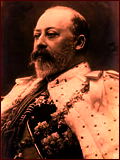 The BRITISH EMPIRE is one of the three Greater Powers of Earth. From its capital of London rules her monarch, Edward VII of the House of Hanover. Other major cities of the Empire are: New York City, Boston, Philadelphia, Bombay, Sydney and Cairo.
The BRITISH EMPIRE is one of the three Greater Powers of Earth. From its capital of London rules her monarch, Edward VII of the House of Hanover. Other major cities of the Empire are: New York City, Boston, Philadelphia, Bombay, Sydney and Cairo.
Britain's 19th century was characterized by the rise of democracy. Although the lower social classes are allowed to vote by law, they are prohibited from involvement in politics by society, government affairs being limited to the upper classes of society. The political landscape in the Empire is divided between three political parties:
- The Conservative Party finds voters mainly among the nobility and wealthy landowners. They favour industrial development and an economy free of government interference. As such, the Conservatives proclaim the banning of trade unions and the welfare state that currently employs people of the lower classes via institutions such as the workhouse. The government should, according to the Conservative Party, focus on a strong foreign policy, internal order, and allow the economy to work as efficiently as possible via minimal interference.
- The Liberal Party believes in maintaining the welfare state in its current form to protect people, including trade unions to protect workers' rights. The Liberals, however, also believe that people should be able to work to improve themselves within this framework. So while the government should have some influence in economic affairs, it should also still be free to be used by people to improve themselves. Tolerations and social improvement are two matters important to the Liberals.
- The Social-Democratic Party share some views with the Liberals, that is, they believe in the welfare state, trade unions and so on, but tend to view the economy as something the government should control via central planning for the good of all, redistributing wealth and jobs as required for the good of the nation as a whole. Toleration and social improvement, while important, are not as important as improving the lot of as many people as possible to the Social-Democrats.
All of the regions of the British Empire considered developped enough have what are known as union-governments. These grew out of Benjamin Franklin's Plan of Union put forward, and accepted, at the Albany Congress of 1754. Each region of the Empire with such a government is administered by a Crown-appointed President-General and a General Council of delegated from the region in question. It has exclusive control over local affairs, including relations with native populations and the acquisition of land for the Crown, and is responsible for the defence of the region. Each of the regions of the Empire sends representatives to Parliament in London. As such, the Empire is ruled for the Empire, not for the British Isles alone. Areas which are not yet considered ready for union-government are fun by District Officers, who have a starff of trained locals and ex-pats, and a larger staff of workers under them.
 There have been huge waves of immigration to British North America, mainly from the Indian subcontinent and other parts of the Empire. Because of this British North America is, ethnically, a mix of mainly British (the Anglo-Saxon type), French (from the old French colonies), Indian (from the sub-continent) and Native American with some Spanish, Chinese and Russian thrown in for good measure. Because of the Indian and Chinese influence there are, in some places, lots of Hindu, Sikh, Buddhist and other temples. Indian Territory and Mountain Territory are two regions within British North America run by and for the Native Americans with their own union-governments. As such they were, originally, Indian-only areas where non-natives were not allowed to settle except at trading towns along major transportation routes, particularly the railways. Although there has been a good deal of mixing over time, and the adoption of European technology, these two regions still retain a largely Native American character.
There have been huge waves of immigration to British North America, mainly from the Indian subcontinent and other parts of the Empire. Because of this British North America is, ethnically, a mix of mainly British (the Anglo-Saxon type), French (from the old French colonies), Indian (from the sub-continent) and Native American with some Spanish, Chinese and Russian thrown in for good measure. Because of the Indian and Chinese influence there are, in some places, lots of Hindu, Sikh, Buddhist and other temples. Indian Territory and Mountain Territory are two regions within British North America run by and for the Native Americans with their own union-governments. As such they were, originally, Indian-only areas where non-natives were not allowed to settle except at trading towns along major transportation routes, particularly the railways. Although there has been a good deal of mixing over time, and the adoption of European technology, these two regions still retain a largely Native American character.
The British Empire rules the following territories: England, Whales, Scotland, Ireland, Calais (France), Brittany (France), Hanover (Germany), Gibraltar (Spain), Corsica, Egypt, Libya, most of the Sahara, Arabia, India, Philippines, Australia, British Guinea, Canada, and most of eastern North America.
 IMPERIAL RUSSIA is ruled from St. Petersburg, where the Romanov Tsarina Catherine III has reigned her empire ever since the death of her husband Czar Nicholas. In Russia, the balance of power is further towards the monarch. There is an elected parliament, the Imperial Duma, but the Czar is the final authourity.As part of this, each region of Imperial Russia has a local government which rules on local affairs, with a governor who rules for the Czar.
IMPERIAL RUSSIA is ruled from St. Petersburg, where the Romanov Tsarina Catherine III has reigned her empire ever since the death of her husband Czar Nicholas. In Russia, the balance of power is further towards the monarch. There is an elected parliament, the Imperial Duma, but the Czar is the final authourity.As part of this, each region of Imperial Russia has a local government which rules on local affairs, with a governor who rules for the Czar.
There are several political movements represented within the Imperial Duma. The Old Nobility, the Boyars, repesent the wealthy landowners. They tent to be conservative, though  they often blur with the somewhat more progressive New Nobility. The Industrial Progress Party represents Russia's growing class of wealthy industrialists, favouring little government interference in economic affairs. Contrary, the Socialists Party fights for more rights and welfare for Russia's proletarian class, which makes up the majority of the population. Two other, smaller parties are the Church Socialists Party, which wishes to make society more egalitarian, often cooperating with the Socialists, and the military and vetarans, who favour a strong Imperial military.
they often blur with the somewhat more progressive New Nobility. The Industrial Progress Party represents Russia's growing class of wealthy industrialists, favouring little government interference in economic affairs. Contrary, the Socialists Party fights for more rights and welfare for Russia's proletarian class, which makes up the majority of the population. Two other, smaller parties are the Church Socialists Party, which wishes to make society more egalitarian, often cooperating with the Socialists, and the military and vetarans, who favour a strong Imperial military.
Imperial Russia rules the following territories: Asia (except for China, India, the Ottoman Empire, and Arabia), Finland, Alaska, and West-Sahara.
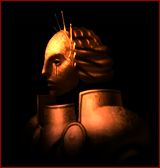 The EMPIRE OF CHINA is ruled by Emperor Chen Wu Long, sometimes called 'the Leper,' from the Forbidden City in Beijing. In China, the balance of power is biased even further toward the monarch than in the other two Greater Powers.
The EMPIRE OF CHINA is ruled by Emperor Chen Wu Long, sometimes called 'the Leper,' from the Forbidden City in Beijing. In China, the balance of power is biased even further toward the monarch than in the other two Greater Powers.
The law and government of the Chinese Empire are based upon the system of Collective Responsibility, which is rooted in the teachings of Confucius. Under this system groups of families are mutually responsible for each others good behaviour and share each others punishments for bad behaviour. Households are organised into groups of ten. Each household sends a representative, who can be male or female, to the monthly meeting of its group, and each such group elects a leader to represent it at the level of government above it. The head of each group is responsible to the level above it for the conduct of all members of their group. This is known as the 'bao jia' (tithing) system.
The bao jia system serves as an extension of the central government. It is the means by which taxation is levied on the populace, and also the means by which welfare and other such things are distributed to the population as they require it. Of course, being run by people the bao jia system is not perfect. As such, there is a large corps of Inspectors, a branch of the Civil Service, who work to enforce the proper running of the system.
With the increased democratisation of the Chinese Empire, and particularly the formation of the constitutional monarchy in 1860, the bao jia system provides a means by which representatives of the people are selected upwards from the mass of the Chinese people and sent to the elected parliament, the Grand Council, in Beijing.
Although China does effectively have the full franchise, membership of the Grand Council remains, in practise if not in law, limited to the upper levels of society, and in particular to members of the progressive School of Practical Learning. As such the nobility, the School of Practical Learning and the Civil Service essentially run the country, with one of the former powers in the Chinese Empire, the Imperial Household Department, having been much reduced over the years.
The Chinese Empire has a different administrative process and a rather younger history of democracy than the other two Greater Powers. The bao jia system used there provides as much of a democratised system as seems to be required, and also provides a mechanism by which the state can call up troops in time of need. It is also the means by which Chinese National Service is administered.
Although China is a progressive nation, because of its lack of democratisation the Empire is still mainly ruled for China as a whole rather than the Empire as a whole. As such, the various Chinese colonies around the world are ruled in the same way as the internal regions of China. That is, in each one the central government structure is copied, and the region is run by an organisation consisting of three commissions, one civil, one military, and one for surveillance.
China is also quite socially stratified. However, the exams for civil service entry are open to anyone, and schooling is universal, so anyone can rise up the ranks from humble beginnings, even into the nobility, the Grand Council, or the School of Practical Learning. China's attitude to colonisation and the outside world has varied somewhat with time; it has a definite tendency towards isolationism, but as the Golden Emperor showed it is wise to look outwards, this has never been total.
As part of the reforms of the Chinese system that made it one of the three great powers of the world, Chinese criminal law was codified into a set of written laws, greatly restricting the flexibility magistrates could exercise during trials. The accused were granted some rights, some protection from 'unnecessary' torture, and were not allowed to be jailed for long periods while awaiting trial. The Emperor, particularly the later Emperors, did what was necessary to make the courts as appealing as possible, stressing the rule of law over their own moral influence, and working to minimise the loss of face and fear involved in making an appearance in court.
The Empire of China rules the following territories: China (including Mongolia and Tibet), Korea, Japan, Chinese Arabia, Chinese East Africa, Madagaskar, western North America (California, Nevada, Oregon, Idaho, Utah, Arizona).
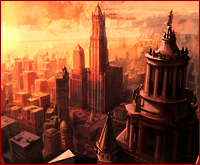 Of the lesser powers and nations, only the EUROPEAN HEGEMONY is a true representative democracy, with two largely powerless royal families, amalgamated from those of the nations which make up the Hegemony. Even the Hegemony's democracy has its problems, as the many industrial concerns in the Hegemony attempt to manipulate the people and thus the government to their own ends.
Of the lesser powers and nations, only the EUROPEAN HEGEMONY is a true representative democracy, with two largely powerless royal families, amalgamated from those of the nations which make up the Hegemony. Even the Hegemony's democracy has its problems, as the many industrial concerns in the Hegemony attempt to manipulate the people and thus the government to their own ends.
The states of the European Hegemony are held together by strong mutual self-protection links -- they have to compete or they will be swamped by the three Greater Powers. They excel as high technology and niche markets. The Hegemony operates a pseudo-socialistic governmental system known as 'poldermorality,' which has also been adopted in some other nations around the world, which involves levelling society and job-sharing.
There are over twenty political parties in the Hegemony. Only nine of these are represented in Parliament, the Second Chamber seated in The Heague, and only five have seats in the First Chamber, or Senate, seated in Stockholm. Other major cities in the Hegemony include: Amsterdam, Rotterdam, Batavia, Paramaribo and Cape Town.
- The Liberal-Democratic Party is the largest political party in the Hegemony, originating from the Dutch concept of 'left-liberalism'. The Liberal-Democrats strive for self-government in personal matters and central decision-making on economics. They want the government to serve the disadvantaged in the name of fairness, tolerating social diversity but working for economic equality.
- The Democratic Party is the second-largest party, often forming a government coalition with the Liberal-Democrats. The Democratic Party is a party of libertarians, who believe the government's sole purpose is to protect people from coercion and violence. The Democrats value individual responsibility and tolerate economic and social diversity.
- The Social-Democratic Party wants the government to advance society and individuals through expert central planning. They doubt whether self-government is practical.
- The Centrists Party, the smallest of the five, favours selective government intervention and emphasizes practical solutions to curent problems. Centrists tend to keep an open mind on new issues. Many feel that governemtn serves as a check on excessive liberty.
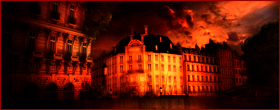 - The Monarchists Party strives for more influence of the Dutch and Swedish royal families in government affairs. They prefer self-government on economic matters, but strives to defend society from threats to its moral fibre.
- The Monarchists Party strives for more influence of the Dutch and Swedish royal families in government affairs. They prefer self-government on economic matters, but strives to defend society from threats to its moral fibre.
The European Hegemony rules the following territories: The Netherlands, Sweden, Norway, Schleswig-Holstein, Algeria, Congo, South-Africa, Malaysia, Indonesia, Guyana, Suriname, Bolivia.
The AUSTRO-HUNGARIAN EMPIRE is one of the weaker powers of Europe, rules from Vienna by Emperor Franz Joseph of Habsburg-Lorraine. The Duel Monarchy is a dualistic state, in which the Kingdom of Hungary enjoys self-government and proportional representation in joint affairs (principally foreign relations and defence) with the western and northern lands of the Austrian Empire under the Emperors of the Habsburg Dynastry.
Austria-Hungary has been established by a compromise between the Hungarian nobility and the Habsburg monarchy in an attempt to maintain the old Austrian Empire. It is a multi-national Empire, and its political life is dominated by disputes between the eleven principal national groups. Although the Empire is frequently upset by quarelling between the groups, it has saw rapid economic growth and modernization throughout its history, as well as many liberal reforms.
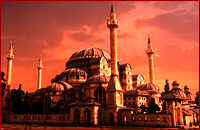 The OTTOMAN EMPIRE houses most of the world's Muslim population. The empire is much reduced from its greatest territorial extent by the actions of the Greater Powers. The Sultan rules what remains of the empire from his capital of Constantinople. The Ottoman Empire is massively corrupt. Bribery is rampant and there is a very little that money cannot buy, but also very little that those without money can achieve. Unsurprisingly, the government and people of the Ottoman Empire are Muslim much more in name than in observance.
The OTTOMAN EMPIRE houses most of the world's Muslim population. The empire is much reduced from its greatest territorial extent by the actions of the Greater Powers. The Sultan rules what remains of the empire from his capital of Constantinople. The Ottoman Empire is massively corrupt. Bribery is rampant and there is a very little that money cannot buy, but also very little that those without money can achieve. Unsurprisingly, the government and people of the Ottoman Empire are Muslim much more in name than in observance.
 The ALBANY UNION came about at a meeting when Benjamin Franklin proposed The Albany Plan of Union; a plan for the voluntary union of the thirteen British colonies in North America into a union which would be administered by a crown-appointed President-General and a General Council of delegates from the colonies, both seated in the capital of Philadelphia.
The ALBANY UNION came about at a meeting when Benjamin Franklin proposed The Albany Plan of Union; a plan for the voluntary union of the thirteen British colonies in North America into a union which would be administered by a crown-appointed President-General and a General Council of delegates from the colonies, both seated in the capital of Philadelphia.
NOUVELLE FRANCE consists of the diminished French colonies of Quebec and Louisiana in North America. Ruled by President Dominique Jospin from the capital of Quebec, Nouvelle France is mostly bypassed in foreign affairs by the British, leading to Nouvelle Franec seeking allegiance with Imperial Russia.
UCHRONIA is based upon Tony Jones' Monarchy World and created by OTTENS.